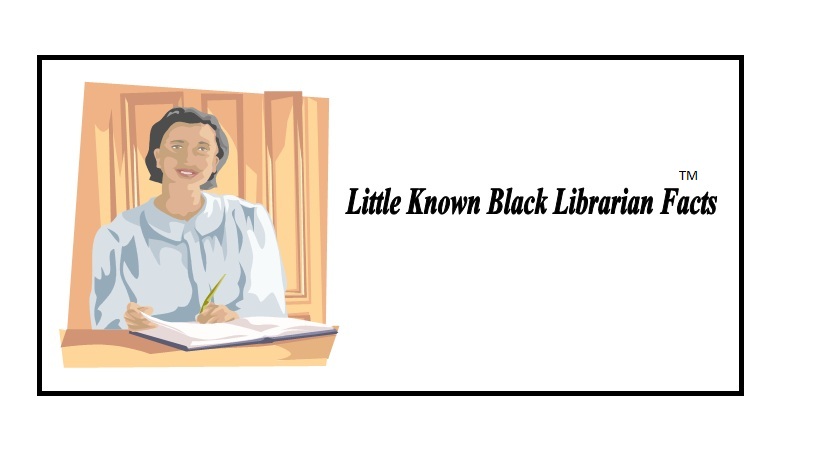Eliza Atkins Gleason, an alumna of Fisk University, became the first dean of the library school at Atlanta University (now
Clark-Atlanta University) in 1941. She was also the first African American to earn a PhD in library science, which she earned from the
University of Chicago in 1940 (her dissertation was published in 1941 as the book,
The Southern Negro and the Public Library). Before coming to Atlanta University, Ms. Gleason was a librarian at
Fisk University and at the Louisville Municipal College for Negroes (now
Simmons College of Kentucky), and served as library director at
Talladega College (Alabama) from 1940-1941.
A native of Winston-Salem, North Carolina, Ms. Gleason was born December 15, 1909 to Simon Green Atkins and Oleona Pegram Atkins. Both of Ms. Gleason's parents were educators (her mother was an alumna of Fisk University in Nashville, Tennessee; her father an alumnus of
St. Augustine's College in Raleigh, North Carolina).
Winston-Salem State University was founded by Ms. Gleason's father in 1892 (the school was formerly known as Slater Industrial Academy).
After graduating high school, Ms. Gleason attended Fisk University in Nashville, Tennessee. She graduated in 1930. A year later, she received her Bachelor of Library Science (BLS) from the University of Illinois. In 1935, she received a master's degree in library science from the
University of California-Berkley. In 1937, she became the wife of Dr. Maurice Gleason.
Ms. Gleason was appointed dean of the Atlanta University Library School in 1941. She remained at the Atlanta University Library School until 1946. After leaving Atlanta, Georgia, she relocated to Chicago, Illinois and worked at Chicago Teachers College, Woodrow Wilson Junior College, Illinois Teachers College, John Crerar Library, Illinois Institute of Technology, and the Chicago Public Library. Ms. Gleason also was a guest lecturer at the University of Chicago and a library science professor at
Northern Illinois University.
After many years of service in the library profession, Ms. Gleason passed away at the age of 100 on December 15, 2009 in Louisville, Kentucky. In 2010, she was inducted into the
University of Louisville College of Arts and Sciences Hall of Honor. The Eliza Atkins Gleason Book Award is named in her honor and is given by the
American Library Association's Library History Round Table to recognize books written on the subject of library history.
*Notes:
Ms. Gleason was not the only librarian in her family. Her sister, Ollie Atkins Carpenter, was a 1927 graduate of the Hampton Institute Library School in Hampton,Virginia (Hampton Institute is now
Hampton University). Ms. Carpenter was also the library school's first graduate to work in Kentucky when she became librarian at the Louisville Municipal College for Negroes. In addition, Ms. Carpenter was also a librarian at
Tuskegee Institute in Tuskegee, Alabama (the school is now Tuskegee University); at Summer High School in St. Louis, Missouri; and at the
University of Maryland.
On YouTube, there is a video of Eliza Atkins Gleason's induction into the University of Louisville College of Arts and Sciences Hall of Honor:
http://www.youtube.com/watch?v=G2uEwkNiR60 .
Established in 1941, the library school at Atlanta University (now Clark-Atlanta University) remained in operation for 64 years before closing its doors in 2005.
Update 02/03/2013:
Legacy.com has a copy of Ms. Gleason's obituary from
The Winston-Salem Journal:
http://www.legacy.com/obituaries/winstonsalem/obituary.aspx?pid=137723460#fbLoggedOut
See related posts: Virginia Lacy Jones: Second African American to Earn PhD in Library Science and
Annette Hoage Phinazee: Dean, Professor, Author, and Librarian.
Sources: Woodson, Almeta Gould. "Fifty Years of Service: A Chronological History of the School of Library Service Atlanta University, 1941-1979; the School of Library and Information Studies Atlanta University, 1979-1989; the School of Library and Information Studies, Clark Atlanta University, 1989-1991."
Georgia Librarian 28.3 (1991):71-72, 78. Print. ; Jordan, Casper and E.J. Josey. "A Chronology of Events in Black Librarianship."
Handbook of Black Librarianship. Ed. E.J. Josey and Marva L. DeLoach. 2nd ed. Lanham: Scarecrow, 2000. 7. Print. ; Dawson, Alma. "Celebrating African American Librarians and Librarianship."
Library Trends 49.1 (2000): 58. Print. ; Totten, Herman L. "Southeastern Black Educators."
The Black Librarian in the Southeast: Reminiscences, Activities, Challenges. Ed. Annette L. Phinazee. Durham: NCCU School of Library Science, 1980. 202. Print. ; "Eliza Atkins Gleason."
Courier Journal (Louisville, Ky.). Courier Journal (Louisville, Ky.), 21 Dec. 2009. Web. 5 Jan. 2011. ; Freightman, Connie Green. "Historically Black College Closes its Library Studies Program."
Crisis 112.1 (2005): 10. Print. ;
A Directory of Negro Graduates of Accredited Library Schools, 1900-1936. Washington: Columbia Civic Library Association, 1937. 6, 8. Print. ; "Eliza Atkins Gleason."
College of Arts and Sciences, Hall of Honor. University of Louisville, n.d. Web. 1. Feb. 2011. ; "Death Notice: Eliza Atkins Gleason."
Chicago Tribune News(Online). Chicago Tribune News, 25 Jan. 2010. Web. 2 Feb. 2013. ; Jones, Reinette F.
Library Service to African Americans in Kentucky, from the Reconstruction Era to the 1960s. Jefferson: McFarland, 2002. 32, 82, 84, 90, 94-95, 161, 163. Print. ; DeLoach, Marva L. "Black Academic Libraries."
Handbook of Black Librarianship. Ed. E.J. Josey and Marva L. DeLoach. 2nd ed. Lanham: Scarecrow, 2000. 413, 419. Print. ; "Eliza Atkins Gleason Book Award."
American Library Association. American Library Association, 2013. Web. 3 Feb. 2013. ; Josey, E.J. "Gleason, Eliza Atkins."
World Encyclopedia of Library and Information Sciences. Ed. Robert Wedgeworth. 3rd ed. Chicago: American Library Association, 1993. 325-326. Print. ; "Atlanta University."
The Crisis 48.5(1941): 148. Print. ; Freightman, Connie Green. "Historically Black College Closes Its Library Studies Program."
The Crisis 112.1 (2005): 10. Print. ; "Gleason, Eliza Valeria Atkins."
Biographical Dictionary of Modern American Educators. Ed. Frederik Ohles, Shirley M. Ohles, and John G. Ramsay. Westport, CT: Greenwood Press, 1997. 132-133.Print.
